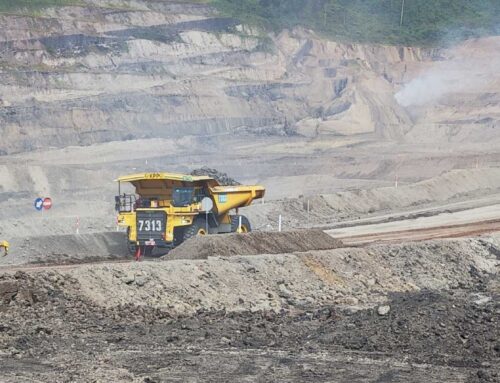In this new series, Positivéco puts the spotlight on the influencers to follow.
To tackle the monumental Emmanuel Faber, we read his book Ouvrir une voie (‘Paving a Way’), published by Editions Paulsen (in French).
Emmanuel Faber testifies about the difficulty of reconciling social and economic issues in a listed multinational company.
From one path to another.
Emmanuel Faber is the former head of Danone, the first company in the world to publish a carbon-adjusted profit in 2019 and the first CAC40 company to adopt the status of mission-driven company in 2020. Sacked after the ‘Covid-19’ period, Emmanuel Faber testifies in Ouvrir une voie about the difficulty of reconciling social and economic issues in a listed multinational company. He declares, “If it were simple, everyone would do it”.
Faber has been at the head of the International Sustainability Standards Board (ISSB) since its creation in 2021.
In his view, the economy and financial markets need to be regulated to ensure resilience.
Just a few months after being ousted from the top job at Danone, Faber found himself back at the foot of the track by joining the IFRS Foundation’s extra-financial standards board (the ISSB). Faber has been at the head of the International Sustainability Standards Board (ISSB) since its creation in 2021. His mission: to bring to a successful conclusion in 2023 the project to create a set of extra-accounting standards that will enable the environmental and social performance of companies and investors to be assessed.
It’s a fast-paced mission, involving organising the interoperability of these standards with other existing reporting standards or those in the pipeline (ESRS), obtaining the support of the world’s leading financial centres and ensuring that they are adopted by the union of auditing and accounting firms (for whom the economic opportunity is obvious).

He continues experimenting with the transformation of food and agricultural systems within the venture capital fund Astanor Ventures.
His strengths.
- Emmanuel Faber has a perfect command of the codes of the market economy.
- Having run a global company, he is the symbol in France that it is possible for a boss to combine leadership with a social vision of the company (echoing Antoine Riboud’s ‘Marseille speech’ in October 1972).
- Being freed from his duties as head of Danone has turned into an advantage for him.
- He can count on a solid network on every continent, including China.
- He continues experimenting with the transformation of food and agricultural systems within the venture capital fund Astanor Ventures.
- He has a string of firsts.
The financial cost of soil degradation would represent an additional 5 to 10% cost to be allocated upstream in the sector.
Faber contributed to the Loi Pacte in France.
He is campaigning for a new definition of competitiveness where competitive advantage (environmental and social) is the ability to access and apply the resources a company needs in a distinctive way.
The real revolution will be to design a competitiveness by and for the living.
His main areas of influence.
(According to ‘Ouvrir une voie’)
- Rethinking the dominant model of intensive monoculture, regenerating soils, relocating agriculture, and reintroducing varietal diversity to combat the impoverishment of living organisms.
Thought worth noting: Regarding soil regeneration, considering the financial cost of soil degradation would represent an additional 5 to 10% cost to be allocated upstream in the sector. This increase in the price of agricultural raw materials would encourage a reduction in food waste, representing between 30% and 40% of the calories harvested in the fields.
- Rethinking the value of companies in the light of new indicators.
Emmanuel Faber contributed to the Loi Pacte in France (download our dossier on the Loi Pacte (FR)). He supported and now guarantees the introduction of “carbon warnings” in the event of unfulfilled decarbonisation commitments.
Thought worth noting: Tools for a successful social transition? Faber advocates implementing universal statistical measures of income distribution within companies and their supply chains.
- Rethinking the concept of the business model.
Emmanuel Faber is campaigning for a new definition of competitiveness where competitive advantage (environmental and social) is the ability to access and apply the resources a company needs in a distinctive way. Costs must include the cost of renewing the resources used.
Thought worth noting: Environmental performance must be reflected in the cost of capital. Competitiveness is based on an identity, a culture, and a narrative that cements social cohesion in a vision that gives meaning. There can be no competitiveness without a carefully thought-out combination of efficiency (optimising the short term) and resilience (securing the long term). This requires a mix of (well) chosen technical innovations and social innovations, governance processes, collective intelligence and social inclusiveness, the essence of which will not be capitalistic but local and cultural.
If this combination anchors the economy and its players in a sovereignty that will make it competitive, the real revolution will be to design a competitiveness by and for the living.
Faber quotes Edward O. Wilson: “We are going through three crises: the climate crisis, the water crisis and the living crisis. Only the living world crisis is reversible.”
About Positivéco
At Positivéco, we see new national and international CSR regulations as vectors for positive growth.
Our job: to improve the readability of your activities for better valuation.
Since 2009, we have been supporting financial institutions, public players, and listed and unlisted companies in the evaluation of their CSR policies, the production of their extra-financial reporting and the implementation of their climate investment and aid projects. Development.
Make an appointment today and find out how to meet the new requirements of economic transparency while serving the project of your company.









Contact us now!